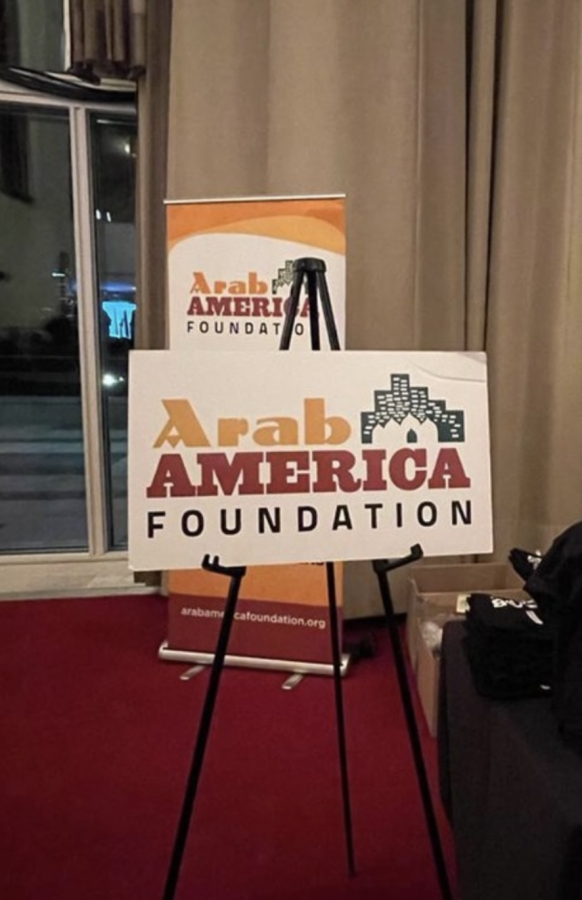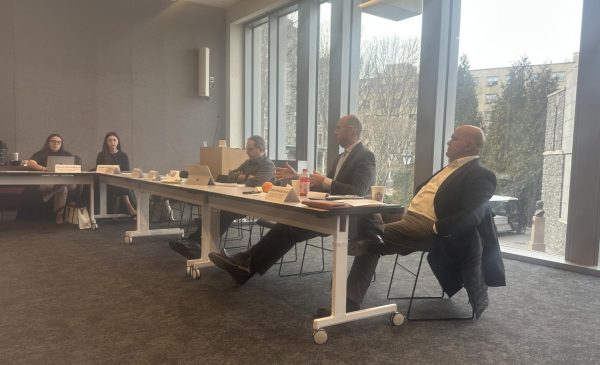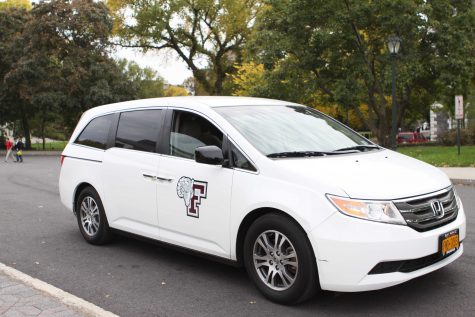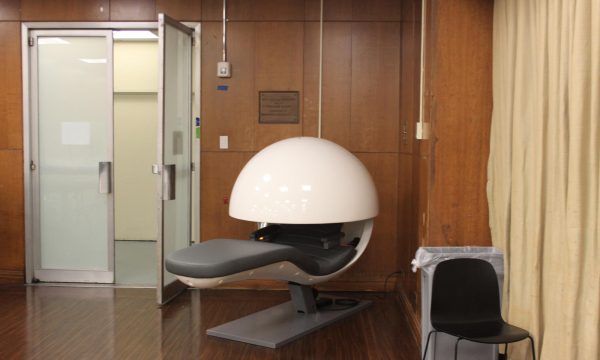MENA Town Hall Raises Awareness
On Wednesday, April 12, the United Student Government (USG) Diversity Action Coalition and the Office of Gabelli School of Business Director of Diversity, Equity and Inclusion presented a celebration and town hall for Arab American Heritage Month. The town hall was a chance for Middle Eastern and North African (MENA) students to discuss their experiences at Fordham.
In 2017, Arab America and the Arab America Foundation launched an initiative for National Arab American Heritage Month (NAAHM). In 2021, the president officially recognized the month of April as National Arab American Heritage Month.
USG Senator Lucas Hjertberg, FCRH ’26, said that this event was inspired by the fact that Arab American Heritage Month has been officially recognized by the president, but not Fordham.
“Fordham has yet to recognize NAAHM, but students on campus certainly have not forgotten the presence, value and contributions of Arab Americans at Fordham,” said Hjertberg. “The town hall comes as Muslims enter the last 10 days of Ramadan and reminds us of our diverse community here at Fordham.”
Hjertberg also explained that the federal census does not include Arab Americans.
“According to the federal census, Arab Americans are considered ‘white,’ as Arab/Middle-Eastern and Northern African is not recognized as an ethnic minority by the United States government,” said Hjertberg. “However, it doesn’t take much to realize that Arab Americans do not share many of the same privileges as white Americans. Therefore, it is up to our generation to hold the necessary conversations that adults refuse to have.”
Hjertberg said that the issue first came to his attention because of his friend Karam Youssef, GSB ’26, who brought up that MENA students were not included in the First-Year Diversity Scholars Program.
“After hearing about this, I immediately reached out to Briana Al-Omoush, VP of the Diversity Action Coalition of USG, and a Jordanian-American. Karam, Briana and I, along with USG Senator Nick Chipelo, got to work immediately. We put together dozens of hours of work and came up with a proposal that was presented on Thursday, April 13.”
Briana Al-Omoush, FCRH ’24, explained that the proposal expands opportunities for MENA students.
“Since February, Lucas and I have been working on a proposal to Expand Opportunities for Middle Eastern and North African Students at Fordham on USG,” said Al-Omoush. “This proposal elevated Karam’s initial concern about MENA students not being eligible for the First Year Diversity Scholars Program within Gabelli.”
Al-Omoush added: “The proposal expands opportunities for MENA students through more scholarship opportunities targeted towards them, inclusion in programs Fordham decides the ethnic and racial filters for, like First-Year Diversity Scholars in Gabelli, and university acknowledgment of Arab American Heritage Month. We thought a good way to open up the conversation with the goals of our proposal was by doing an event to celebrate Arab American Heritage Month, as we have yet to see this done elsewhere in the university.”
Youssef, who is also involved in the proposal, explained that the town hall was a chance to elevate unheard voices on campus.
“The main goals [of the town hall] were to understand how we can work together to make Arab American students on campus feel more accommodated and welcome, as currently, we do not feel as though we are,” said Youssef.
Hjertberg added that there were many different experiences shared at the town hall.
“Many students shared how they feel alienated by the Fordham community, especially international students who don’t feel like Fordham takes the proper steps to integrate them into the Rose Hill environment,” said Hjertberg.
Hjertberg added: “Additionally, students from the Students for Justice in Palestine (SJP) at Lincoln Center shared their disappointment at USGRH for not spreading their concern about Fordham’s recent decision to open a new study abroad program with an Israeli university located in East Jerusalem, which is officially recognized as Palestinian land. Students also shared that they would like to see more attention paid to the holy month of Ramadan. Students suggested increasing awareness of the month on campus and ensuring professors understand that students may need to break fast during classes that take place later in the day.”
Youssef said that other grievances were how the school handled Ramadan and the lack of opportunities for Arab American students.
“With the cafeteria closing at 7 [p.m.] on weekends, it was very difficult to get a wide range of healthier foods in. With limited food options on campus, it was difficult to get in meals,” said Youssef. “On top of this, recently there were quotes hung around the gates of Eddies with one saying ‘Deus Vult,’ which is a quote from the crusades used by Christian Nationalists. A student saw this and it made him uncomfortable, as he is a Muslim. Overall, students were mainly more hopeful for a more active Middle Eastern community, but unfortunately did not get that through what they felt was a lack of opportunities.”
Overall, Youssef said he hopes that people realize that their voices matter.
“I hope that people take away that no matter who you are, you deserve to be heard and to be seen. It is essential that we all embrace our diversity and celebrate our culture. You should also never be shy if you have any grievances with anything. You should make an effort to be the change,” said Youssef.
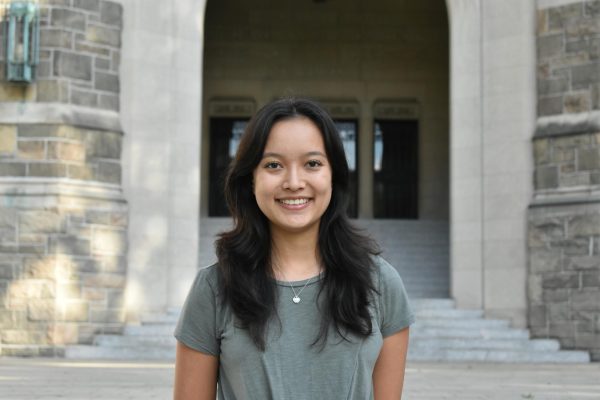
Emma Kim is a junior from Pittsburgh. She is double majoring in economics and English. She started as a contributing writer for news in her freshman year...





































































































































































































